Epoxy grout has become a popular choice for many homeowners thanks to its durability, resistance to stains, and low maintenance requirements.
You might be wondering if epoxy grout needs to be sealed to enhance its performance and longevity.
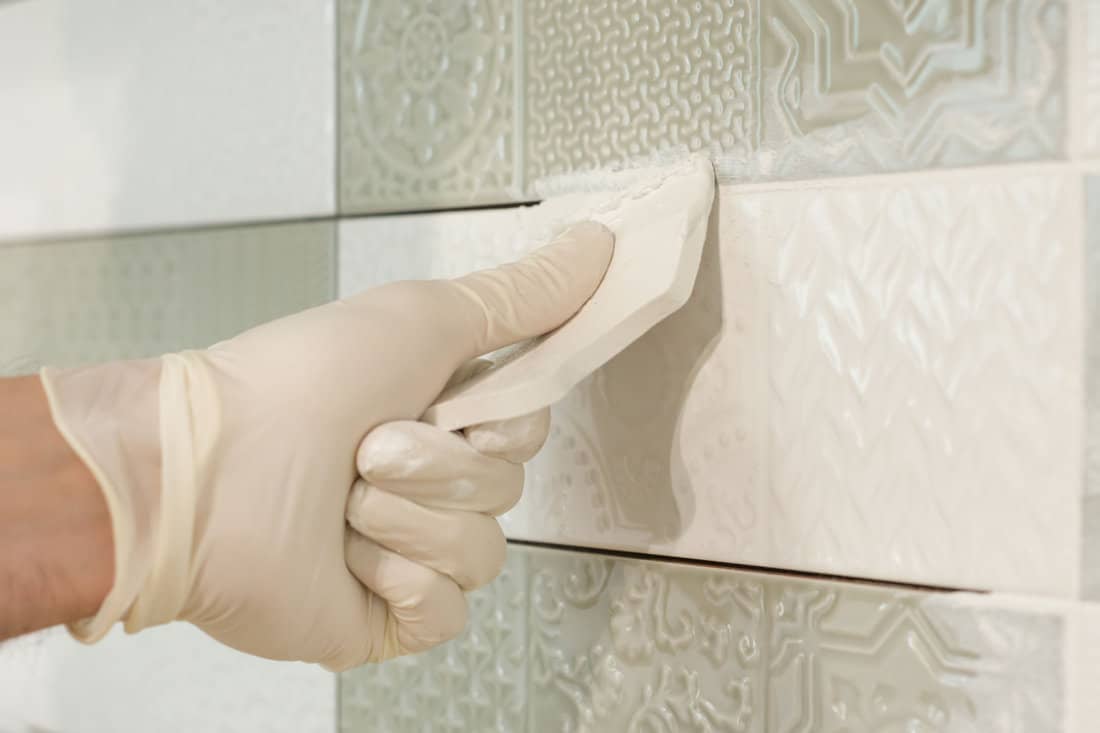
Let's look at epoxy grout's properties and formulation to find out if it still needs sealing.
Does Epoxy Grout Need a Sealer?
While traditional cement-based grouts often require sealing to ensure they remain water-resistant and resistant to stains, epoxy grout is different.
Its unique formulation, consisting of epoxy resin and hardener, makes it highly resilient to water and staining right from the beginning.
This means that, in most cases, you don't need to worry about sealing epoxy grout as it already possesses the properties you desire.
However, it's essential to consider the specific conditions and requirements of your project.
In some cases, homeowners might choose to seal epoxy grout for additional protection or to alter its appearance, such as enhancing the color.
Ultimately, the decision depends on your preferences and the unique situation at hand.
Epoxy Grout Composition
Epoxy grout is a two-component grouting material made up of epoxy resin and hardener.
When these two components are mixed, they create a strong, waterproof, and durable compound.
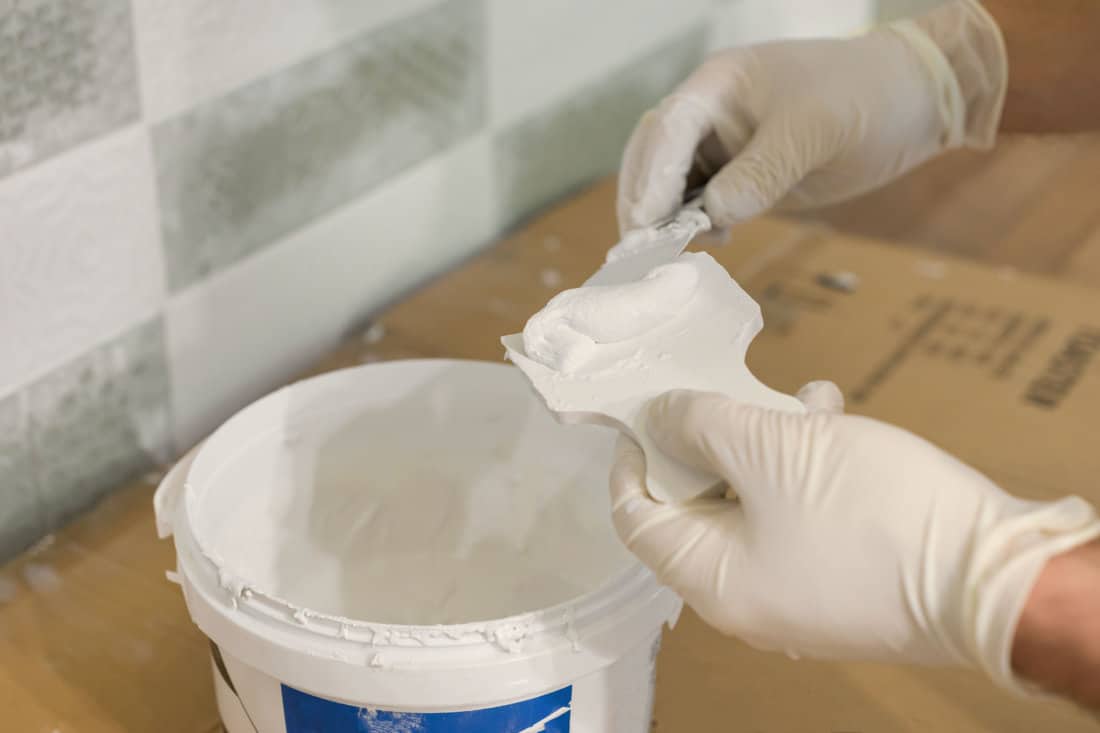
We may include affiliate links and curated AI content to highlight top design styles.
The epoxy resin provides excellent adhesion and durability, while the hardener ensures that the grout sets and cures properly.
Some epoxy grouts also contain fillers such as sand, which can further improve their performance and make them suitable for a wide range of applications.
Check out this epoxy grout on Amazon.
Common Applications
Epoxy grout is popular for its versatility and several advantages it offers over other types of grouts.
It's typically used in areas where you need a high-performance, waterproof, and stain-resistant solution. These can include:
1. Bathrooms
With epoxy grout, your bathroom tiles will have an extra protective layer, ensuring that water and moisture don't seep through the joints. This way, you can maintain a clean and hygienic environment.
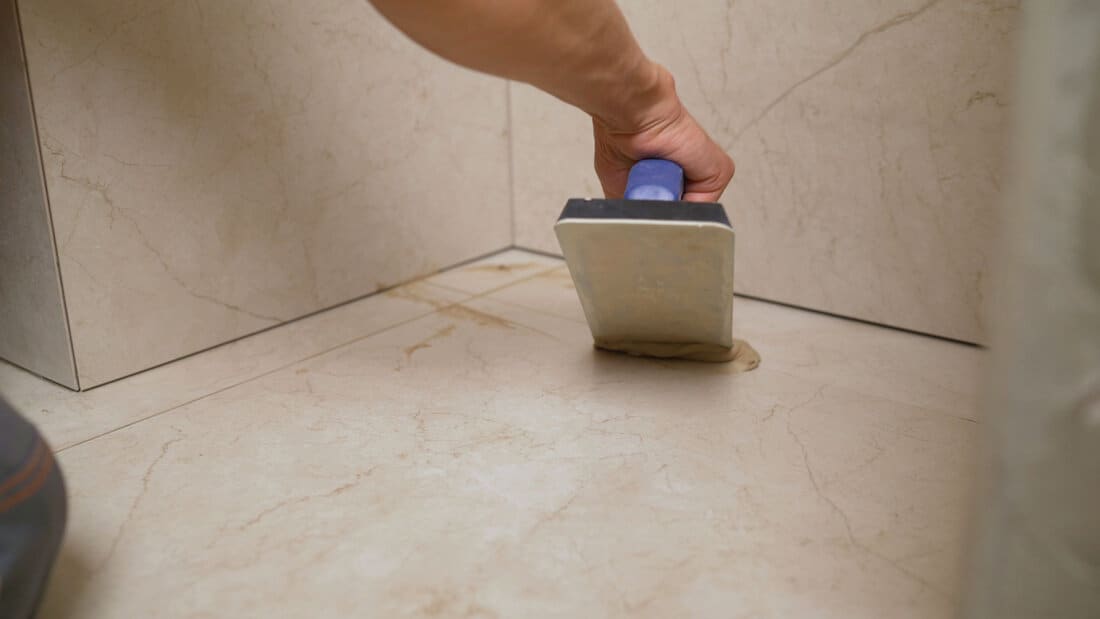
2. Kitchens
Since it's resistant to stains, using epoxy grout in your kitchen can make it easier to clean up spills and messes.
It's ideal for areas around sinks, stoves, and countertops where food preparation and cooking happen.
3. Commercial and Industrial Spaces
Due to its strength and durability, epoxy grout is perfect for commercial and industrial settings that experience heavy traffic or are exposed to chemicals and harsh environments.
Remember, epoxy grout may be a bit more challenging to work with compared to traditional grouts, mainly due to its fast cure time and the need for proper mixing of the resin and hardener.
However, once properly applied, it offers long-lasting performance that can save you both time and resources in the long run.
Read here for more information on grout application: How To Fill Gaps Between Tiles [Using Grout, Caulk, Gap Filling Powder, Or White Cement]
Sealing Epoxy Grout
Epoxy grout is a popular choice for its durability and resistance to stains and water.
However, you might be wondering if it needs to be sealed. Generally, epoxy grout does not need sealing because it is already resistant to moisture and stains.
Nonetheless, you may choose to apply a sealant if you want to enhance its appearance or provide added protection in areas prone to heavy wear and tear.
Try this easy-to-use Black Diamond grout sealer on Amazon.
Sealing Process
Applying sealant to epoxy grout is a straightforward process. Make sure to clean the surface thoroughly beforehand, removing any dirt, grime, or soap scum.
Let the area fully dry before applying the sealant. Using a brush, sponge, or sprayer, apply the sealant to the grout lines, being careful not to leave any streaks.
Allow it to cure according to the manufacturer's instructions—usually 24 to 72 hours—before using the area.
Product Choices
There are numerous sealants available on the market, so be sure to choose one specifically designed for epoxy grout. Some sealants may be water-based, while others are solvent-based.
Water-based sealants tend to be more environmentally friendly, have lower odor, and are easier to clean up. Solvent-based sealants, however, offer greater durability and longer-lasting protection.
Always follow the manufacturer's instructions and recommendations when choosing a sealant and applying it to your epoxy grout.
Here's a waterproof tile grout sealant on Amazon.
Is Sealing Necessary for Epoxy Grout in Showers?
Epoxy grout has become a popular choice for use in showers due to its numerous benefits.
One of the main advantages of epoxy grout is that it is less porous compared to traditional cement-based grout, which means it is more resistant to water, stains, and mold.
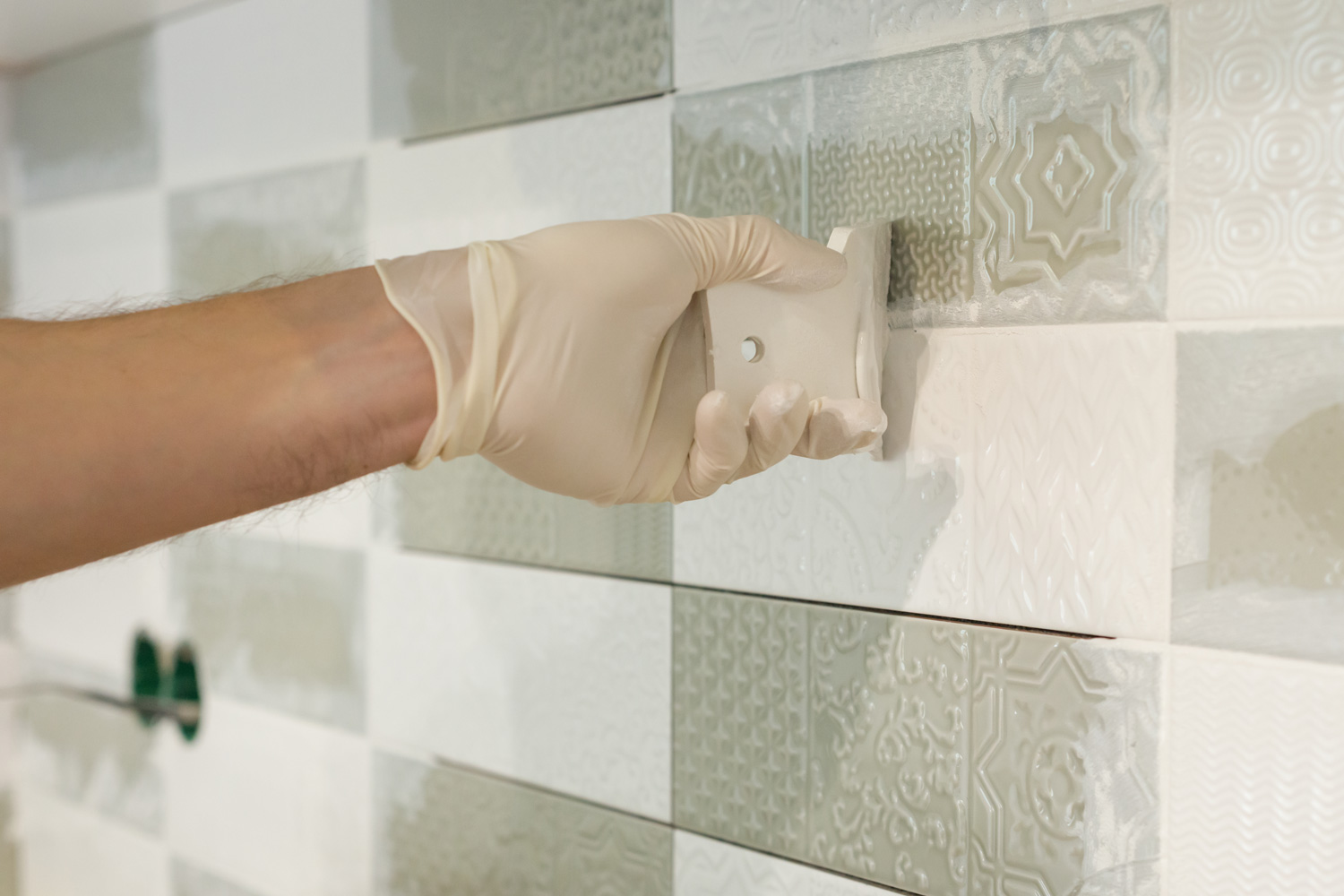
This makes it an ideal choice for areas with high humidity and moisture, like your shower.
As a result of its low porosity, you may wonder if it's necessary to seal epoxy grout in showers.
Good news: sealing is not always required for epoxy grout! Due to its inherent water resistance, it already offers excellent protection against water penetration, without the need for a separate sealer.
However, it's important to note that not all epoxy grouts are created equal. Be sure to choose a high-quality epoxy grout that is specifically designed for use in showers.
This will ensure that it provides the best possible protection against moisture and staining.
For more information, read here: Is Epoxy Grout Good For Showers?
Maintenance Tips
Maintaining your epoxy grout is essential for the longevity and appearance of your tiled surfaces. Here are some maintenance tips to help you keep your epoxy grout in top condition.
Cleaning
Regular cleaning is necessary to keep your epoxy grout looking fresh and clear of stains. Start by wiping the surface with a damp cloth or sponge to remove dirt and dust.
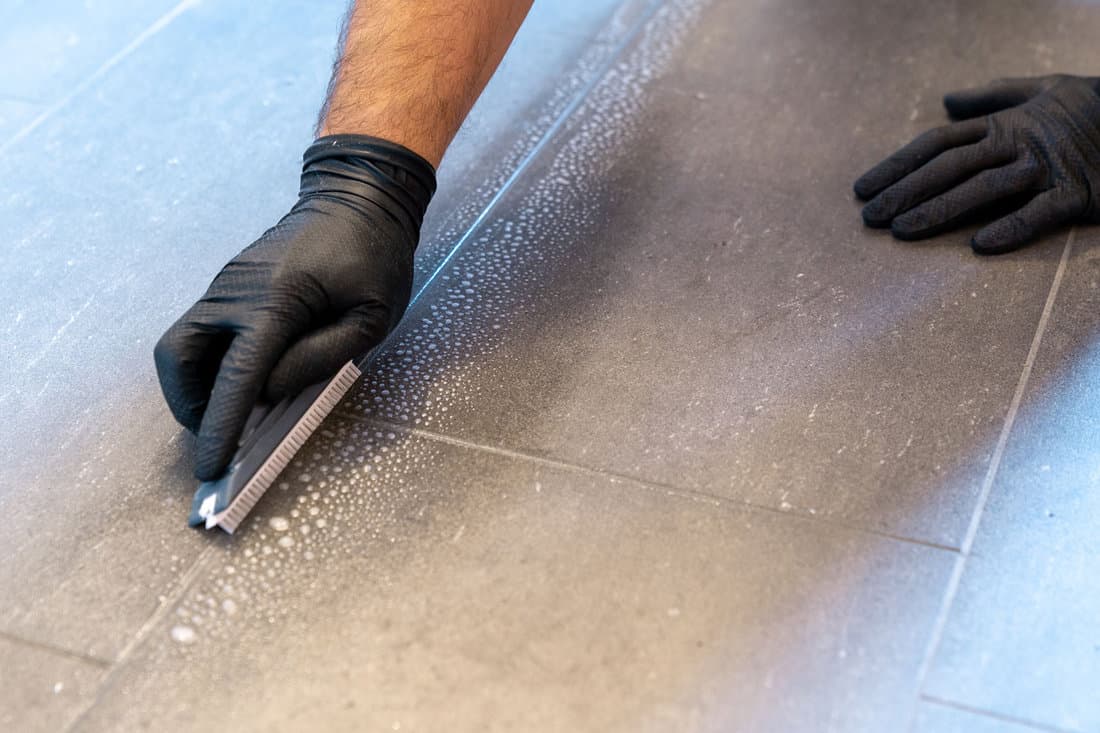
If you notice any stubborn stains or dirt buildup, use a non-abrasive cleaner specifically designed for epoxy grout, which can be found at most hardware or home improvement stores.
Avoid using abrasive cleaning tools or chemicals, as they may damage the grout. When cleaning, make sure to:
- Use a soft cloth or sponge: This will help prevent scratches on the grout's surface.
- Rinse thoroughly: After applying the cleaner, make sure to rinse the surface well, removing any residue.
Read here for more tips: 4 Easy Ways To Clean Grout Without Scrubbing
Long-Term Care
Proper long-term care will ensure that your epoxy grout remains in good condition for years.
While epoxy grout is generally more durable and resistant to stains compared to other grout types, it is still essential to protect it from potential damage.
To ensure the longevity of your epoxy grout, follow these tips:
1. Inspect Periodically
Check for any cracks, chips, or signs of wear. Regular inspection will help you identify any potential issues early and take the necessary steps to address them.
2. Promptly Repair Damage
If you notice any damage, such as cracks or chips, address them immediately to prevent further deterioration.
This may include removing the damaged grout and applying a fresh layer of epoxy grout.
3. Consider Sealing
Although epoxy grout generally does not require sealing, some homeowners choose to seal it for added protection.
Consult with a professional to determine if sealing is necessary for your specific application.
How Long Can We Expect Epoxy Grout to Last?
Epoxy grout is known for its durability and longevity, which makes it an excellent choice for many tiling projects.
On average, you can expect epoxy grout to last up to 20 years or more without needing to be sealed or replaced.
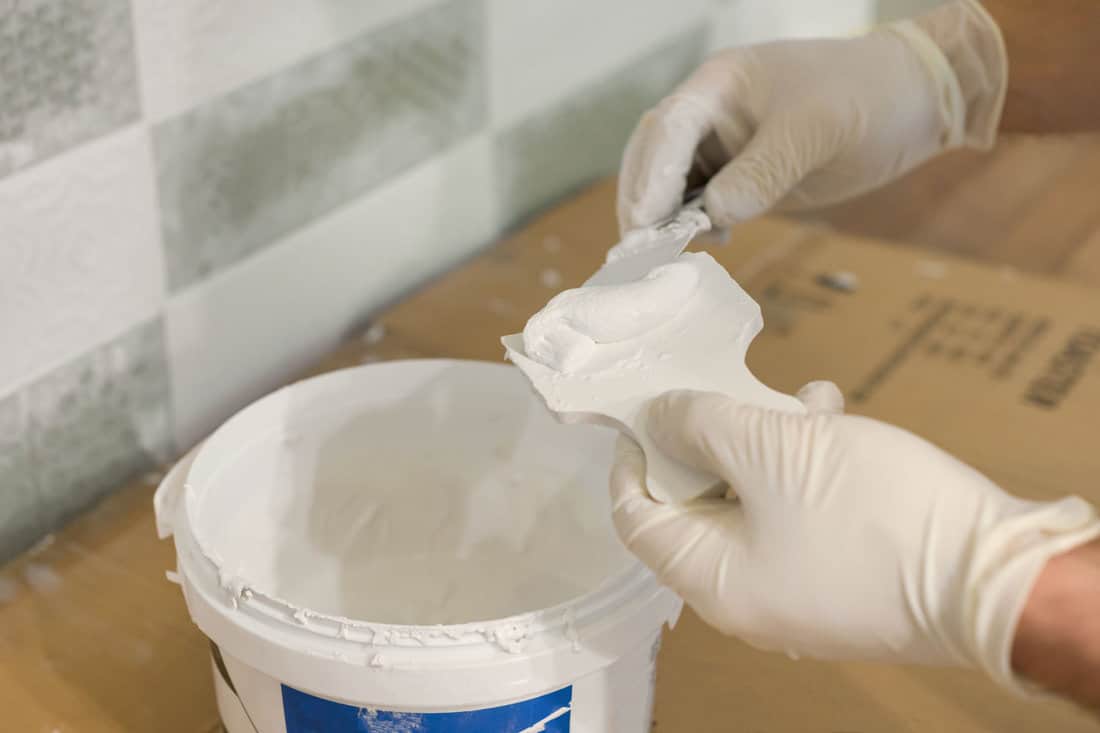
However, the exact lifespan of your epoxy grout will depend on various factors such as the quality of the grout used, the level of cleaning and maintenance provided, and environmental conditions.
One of the key advantages of epoxy grout is its resistance to chemical agents and moisture.
This means that, unlike traditional cement-based grout, epoxy grout is less prone to staining, discoloration, and mold growth.
To ensure the longevity of your epoxy grout, it's important to regularly clean the tile surfaces using a mild cleaner and soft cloth or sponge.
Avoid using harsh chemicals or abrasive materials, as these could cause damage to the grout over time.
Environmental factors like temperature and humidity can also affect the lifespan of your epoxy grout.
In environments with extreme temperature fluctuations or frequent moisture exposure, the grout may experience more wear and tear.
However, epoxy grout is generally more resilient to these conditions compared to cement-based grout, so it should still last a long time even in challenging environments.
Epoxy Grout Does Not Need a Sealant
Epoxy grout is a reliable and durable option for your tiling needs. Its water-resistant and stain-resistant properties make it an ideal choice for various applications, such as bathrooms, kitchens, and outdoor areas.
Epoxy grout is inherently resistant to water and stains, which means that additional sealing is optional.
However, sealing can provide an extra layer of protection and can prolong the life of your grout.
So, if you want to ensure maximum longevity and a pristine appearance, you can opt for sealing your epoxy grout.
Ultimately, the decision to seal or not to seal your epoxy grout will depend on your specific needs and preferences.
Need more insights on grout application and tiling? Read here: Can You Use Tile Adhesive As Grout?





![Tile setter applying thinset to a single tile, Will Thinset Stick To Formica [Answered] - 1600x900](https://homedecorbliss.com/wp-content/uploads/2023/08/shutterstock_1734268679-600x338.jpg)
![The working tiler removes the glued tile from the wall, the technology of professional and highly skilled tile work - How to Remove Mortar From Old Tiles For Reuse [the Ultimate Guide]](https://homedecorbliss.com/wp-content/uploads/2023/08/The-working-tiler-removes-the-glued-tile-from-the-wall-the-technology-of-professional-and-highly-skilled-tile-work-600x400.jpg)